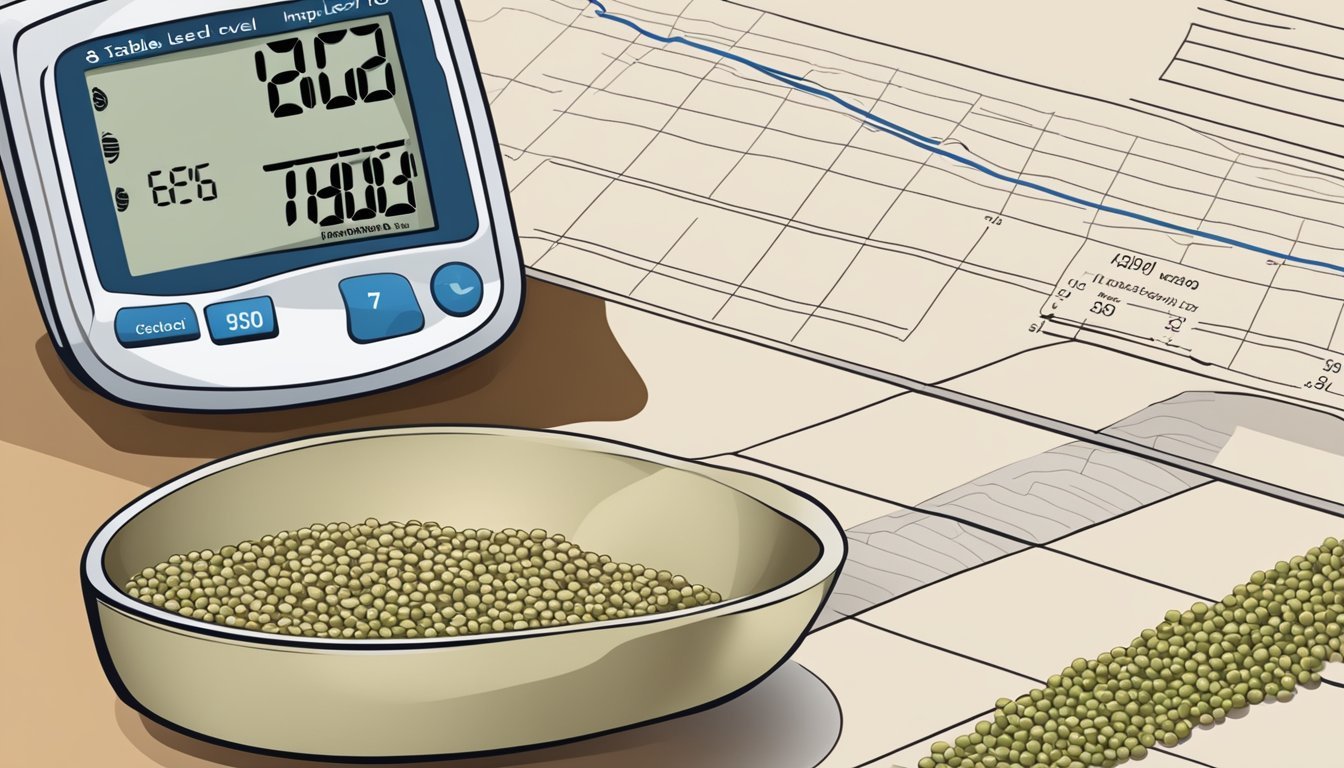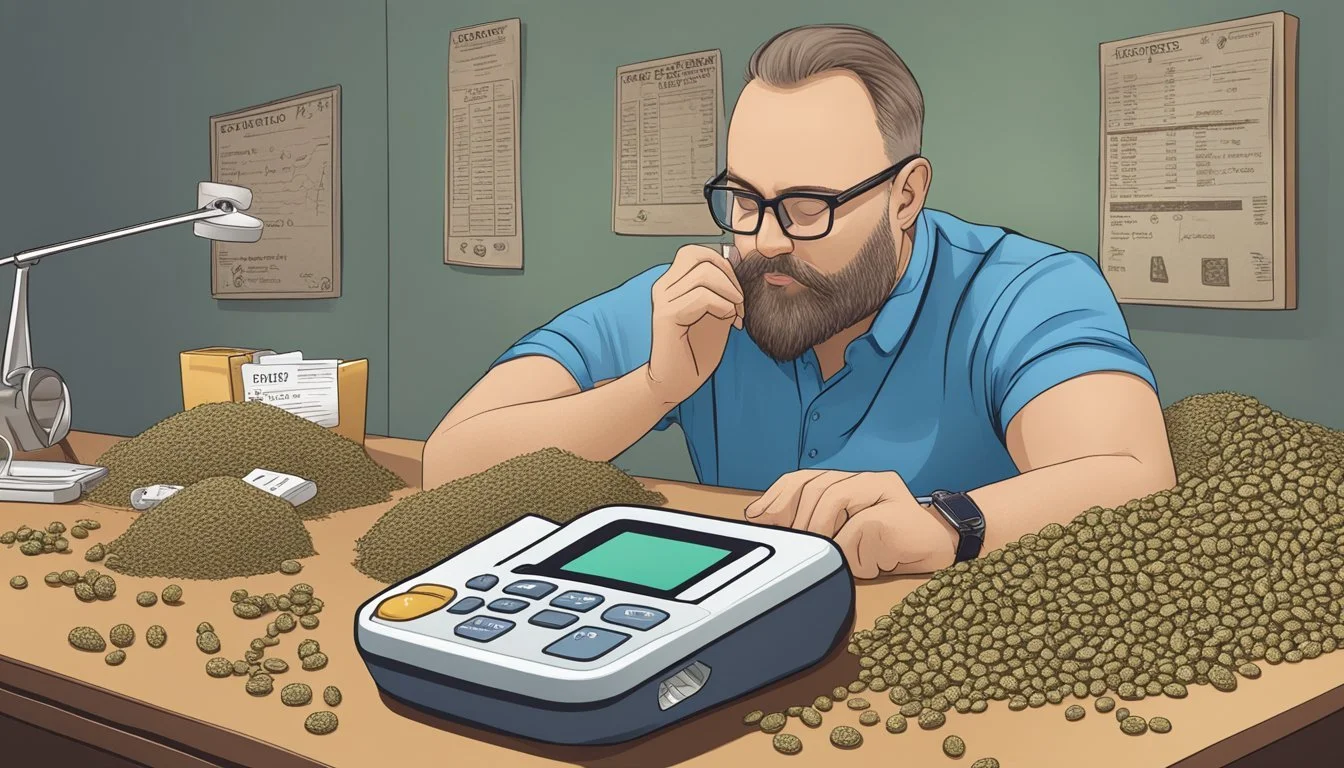Can Diabetics Eat Hemp Seeds?
Understanding the Health Implications
For those managing diabetes, incorporating nutritious foods is crucial to maintaining stable blood sugar levels and promoting overall health. Hemp seeds have garnered attention for their impressive nutritional profile, which includes essential fatty acids, proteins, and a range of vitamins and minerals. Diabetics can benefit from hemp seeds due to their potential to aid in blood sugar regulation and support heart health when consumed in moderation.
Hemp seeds are particularly notable for their high content of healthy fats, protein, and fiber, which can help in managing blood glucose levels. They also contain gamma-linolenic acid (GLA), which may have anti-inflammatory effects beneficial for individuals with diabetes. Consuming hemp seeds can be as simple as sprinkling them on salads, mixing them into yogurt, or adding them to smoothies for a nutritional boost.
While hemp seeds can be a nutritious addition to a diabetic-friendly diet, it is essential to eat them in moderation due to their high-fat content, which may cause digestive discomfort if consumed excessively. Staying hydrated is important when including fiber-rich foods like hemp seeds to prevent issues such as bloating or constipation.
Understanding Diabetes and Nutrition
Managing diabetes requires a keen emphasis on diet. This involves balancing carbohydrates, fats, protein, and fiber to maintain optimal blood sugar levels.
Role of Diet in Diabetes Management
Diet plays a crucial role in diabetes management. The primary goal is to regulate blood sugar levels. Carbohydrates have the most significant impact on blood sugar as they are broken down into glucose. Complex carbohydrates like whole grains and vegetables are preferable.
Protein can help manage blood sugar by slowing digestion and promoting satiety. Lean sources such as chicken, fish, and legumes are recommended. Healthy fats — like those found in nuts, seeds, avocado, and olive oil — support heart health, which is particularly important for diabetics.
Fiber is essential as it slows sugar absorption, helping manage blood sugar spikes. Foods high in fiber include fruits, vegetables, whole grains, and legumes.
Essential Nutrients for Diabetics
Diabetics need a balance of essential nutrients. Vitamins and minerals like magnesium, potassium, and vitamin D play roles in insulin sensitivity and glucose metabolism. Omega-3 fatty acids found in fish and seeds reduce inflammation and cardiovascular risks.
A balanced intake of dietary fiber, found in whole grains and vegetables, helps control blood sugar levels and supports digestive health. Proteins assist in muscle repair and promote overall health. Diabetics should prioritize nutrient-dense foods that provide these essential elements without excessive calories, ensuring they maintain a healthy weight and stable blood sugar levels.
Health Benefits of Hemp Seeds
Hemp seeds offer numerous health benefits, particularly in promoting heart health, reducing inflammation, and providing a rich source of protein and essential amino acids.
Heart Health and Hemp Seeds
Hemp seeds are beneficial for heart health due to their optimal ratio of omega-6 to omega-3 fatty acids. This ratio supports cardiovascular function and helps maintain healthy cholesterol levels.
Arginine, an amino acid present in hemp seeds, also contributes to heart health by potentially lowering blood pressure. Some studies suggest that hemp seed oil may reduce the risk of stroke and heart attacks, though more research is needed. These essential components make hemp seeds a valuable addition to a heart-healthy diet.
Inflammatory Response and Hemp Seeds
Hemp seeds contain anti-inflammatory properties, largely due to the presence of omega-3 and omega-6 fatty acids. These essential fatty acids help modulate the body's inflammatory response.
The seeds also provide gamma-linolenic acid (GLA), which may further reduce inflammation. This can be particularly useful for individuals with inflammatory conditions such as arthritis.
Including hemp seeds in the diet can offer a natural way to manage and potentially reduce chronic inflammation, improving overall health and well-being.
Protein and Amino Acid Profile of Hemp Seeds
Hemp seeds are a powerful source of protein, providing about 9.5 grams of protein per serving. This is especially valuable for those on plant-based diets.
They contain all nine essential amino acids, making them a complete protein source. Essential amino acids are crucial for various bodily functions, including muscle repair and immune system support.
The presence of arginine further boosts the nutritional profile, offering additional health benefits. These seeds can be consumed in various forms, such as raw, cooked, or as hemp seed oil, making them a versatile and nutritious addition to any diet.
Nutritional Composition of Hemp Seeds
Hemp seeds are packed with essential nutrients and can be beneficial for those managing diabetes. They provide a balanced mix of macronutrients and are rich in various vitamins and minerals.
Macro and Micro-nutrients in Hemp Seeds
Hemp seeds offer a comprehensive macronutrient profile. They are composed of approximately 20% to 25% protein, 25% to 35% fats, and 20% to 30% carbohydrates.
The protein in hemp seeds is a complete protein, meaning it contains all nine essential amino acids. This makes it a valuable source of protein, especially for those following vegetarian or vegan diets.
Hemp seeds are also rich in essential fatty acids, including omega-3 and omega-6, which help reduce cardiovascular disease risk factors. They contain more than 30% fat, with a healthy ratio of these fatty acids. Insoluble fiber is another key component, making up around 10% to 15% of the seed, aiding in digestion and blood sugar regulation.
Vitamins and Minerals in Hemp Seeds
Hemp seeds are a significant source of various vitamins and minerals. They provide notable amounts of magnesium, which is crucial for metabolism and overall health.
Iron and zinc are also found in substantial quantities. Iron is essential for blood oxygenation, while zinc supports the immune system. Potassium and phosphorus contribute to heart health and bone strength, respectively.
Hemp seeds also contain Vitamin E, an antioxidant that protects cells from oxidative stress. Additionally, they offer trace amounts of other beneficial nutrients. This rich array of vitamins and minerals makes hemp seeds a valuable addition to a diabetic-friendly diet.
Hemp Seeds and Blood Sugar Control
Hemp seeds may offer unique benefits for managing blood sugar levels and insulin sensitivity. Various components such as dietary fiber and essential fatty acids contribute to these effects.
Impact on Blood Sugar and Insulin Levels
Hemp seeds are rich in essential nutrients like magnesium, which plays a crucial role in glucose metabolism.
Research suggests that hemp seeds can help lower blood sugar levels and improve insulin sensitivity. Studies on diabetic individuals have shown that moderate consumption of hemp seeds may result in better blood sugar regulation, which is crucial for managing diabetes.
The presence of omega-3 and omega-6 fatty acids in hemp seeds aids in maintaining heart health, which is often a major concern for diabetics. These fatty acids help reduce inflammation and may contribute to improved insulin sensitivity, potentially lowering the risk of complications.
Dietary Fiber's Role in Blood Sugar Regulation
Fiber is another vital component found in hemp seeds, contributing significantly to blood sugar control.
Dietary fiber slows down the absorption of sugar in the bloodstream, preventing sudden spikes in blood glucose levels. This is particularly beneficial for diabetics who need to manage their blood sugar carefully.
Hemp seeds provide both soluble and insoluble fiber, promoting overall digestive health and aiding in the stable release of glucose. Soluble fiber, in particular, forms a gel-like substance in the gut, which can help manage blood sugar and cholesterol levels. This can be beneficial for diabetics, helping maintain better overall blood glucose levels.
Safe Consumption of Hemp Seeds for Diabetics
Hemp seeds can be a great addition to a diabetic diet due to their nutritional profile. Key considerations include the right serving size and how to effectively incorporate them into meals.
Recommended Intake and Serving Size
Moderation is essential when adding hemp seeds to the diet. A typical serving size is 1-2 tablespoons per day. This quantity provides beneficial nutrients without excessive calorie intake.
Nutrition-wise, a tablespoon of hemp seeds has around 166 calories. They are rich in healthy fats and essential fatty acids like omega-3 and omega-6, which support heart health. Hemp seeds also offer fiber, which aids in blood sugar regulation and digestion.
Incorporating Hemp Seeds into a Diabetic Diet
Hemp seeds are versatile and can be included in various meals. They can be sprinkled on salads or mixed into yogurt for added texture. For breakfast, adding them to oatmeal or a smoothie boost nutritional intake.
When preparing meals, hemp seeds can replace nuts in baking or be added to turkey patties for a nutritional boost. Experimenting with these different methods can make it easier to add hemp seeds to daily meals without disrupting dietary routines.
Culinary Uses and Recipes
Hemp seeds are versatile and can enhance various dishes. Known for their nutty flavor and nutritional value, these seeds can be easily integrated into many meals suitable for diabetics.
Creative Ways to Include Hemp Seeds in Meals
Incorporate hemp seeds into your daily diet with simple swaps. Sprinkle them on salads for added texture and nutrition. Mix them into yogurt or a smoothie for a protein boost. Add to soup or bread recipes to elevate flavor and nutritional content. Hemp milk can be made by blending hemp seeds with water, offering a dairy-free alternative rich in omega-3 and omega-6 fatty acids.
Recipe Ideas:
Salad Topping: Add a tablespoon of hemp seeds to any green salad.
Yogurt: Mix 1-2 tablespoons of hemp seeds with Greek yogurt and berries.
Smoothie: Blend hemp seeds into a fruit and vegetable smoothie.
Soup: Stir in hemp seeds to your favorite vegetable or chicken soup recipe.
Bread: Add hemp seeds to homemade bread dough.
Pairing Hemp Seeds with Other Diabetic-friendly Foods
Pairing hemp seeds with foods beneficial for diabetics can create balanced, nutritious meals. Top avocado toast with hemp seeds to add crunch and omegas. Combine with steel-cut oats for a hearty breakfast. Use them to enrich ground turkey when making turkey patties, boosting protein and essential fats.
Recipe Ideas:
Avocado Toast: Mash avocado on whole-grain bread, sprinkle with a tablespoon of hemp seeds.
Turkey Patties: Mix hemp seeds into ground turkey, along with spices, before cooking.
Steel-Cut Oats: Add 1-2 tablespoons to cooked oats along with fresh fruit.
By integrating hemp seeds into your diet, you can enjoy their health benefits while enhancing various diabetic-friendly dishes.
Possible Risks and Considerations
When incorporating hemp seeds into a diabetic diet, it is crucial to be aware of potential interactions with diabetes medications and the THC content present in hemp seeds.
Interactions with Diabetes Medications
Hemp seeds contain various nutrients and compounds that may interact with diabetes medications. Arginine, an amino acid found in hemp seeds, can influence cardiovascular health. However, it is essential to monitor blood pressure levels regularly when consuming hemp seeds alongside diabetes medications.
Some components in hemp seeds may affect the absorption and efficacy of insulin or other diabetes medications. Patients should consult their healthcare provider before adding hemp seeds to their diet to avoid adverse interactions.
Close monitoring of blood sugar levels is advised, particularly for those on insulin therapy, to ensure no significant fluctuations occur that could complicate diabetes management.
THC Content in Hemp Seeds
Hemp seeds are derived from the Cannabis plant but contain negligible amounts of THC (tetrahydrocannabinol), the psychoactive compound found in marijuana. Hemp seeds cultivated for food typically have THC levels below 0.3%, insufficient to produce psychoactive effects.
Nevertheless, trace amounts of THC are present and might pose a concern for highly sensitive individuals or those subjected to rigorous drug testing. Regular consumption of large quantities of hemp seeds may lead to the accumulation of enough THC to potentially interfere with drug tests, even though the likelihood is minimal.
It is reassuring to know that hemp seeds primarily contribute nutritional value without the psychoactive effects associated with Cannabis. This makes them a generally safe addition to a diabetic's diet, provided they monitor portions and stay informed about THC content.









